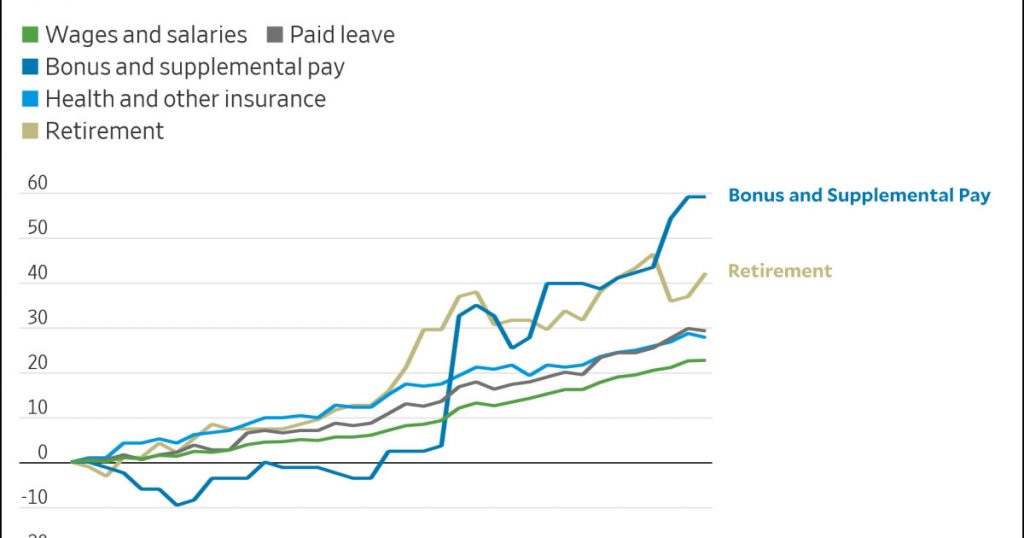For the Middle Class, Wages Are Pretty Much the Whole Story
Looking for news you can trust?Subscribe to our free newsletters.
As I mentioned a few days ago, benefits have risen a little faster than cash wages lately:
U.S. employers are boosting benefits—including bonuses and vacation time—at a faster pace than salaries, a move that gives them more flexibility to dial back that compensation if the economy turns sour. The cost of benefits for private-sector employers rose 3% in June from a year earlier, while the cost of wages and salaries advanced 2.7%, the Labor Department said Tuesday.
This is not a huge difference, and it looks worse if you break it down by type of benefit:
Call me cynical, but without bothering to check this out I think it’s safe to say that bonuses and retirement pay are heavily skewed in favor of the affluent and the rich. For ordinary working-class and middle-class workers, total compensation has probably risen a hair faster than cash wages, but that’s all. What this means is that when you see the annual earnings reported by the Census Bureau—which is what all of us rely on for basic wage data—it’s pretty close to total compensation data. Total comp for the middle class may be growing faster than wages alone, but only by a tiny bit.





